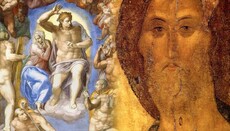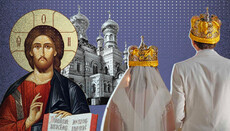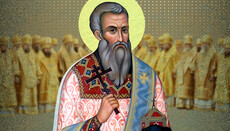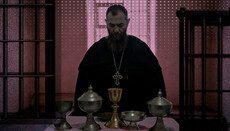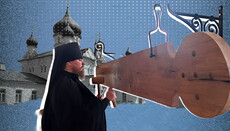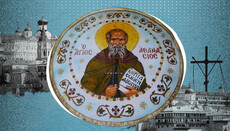Stories of the Ancient Church: Presbyters
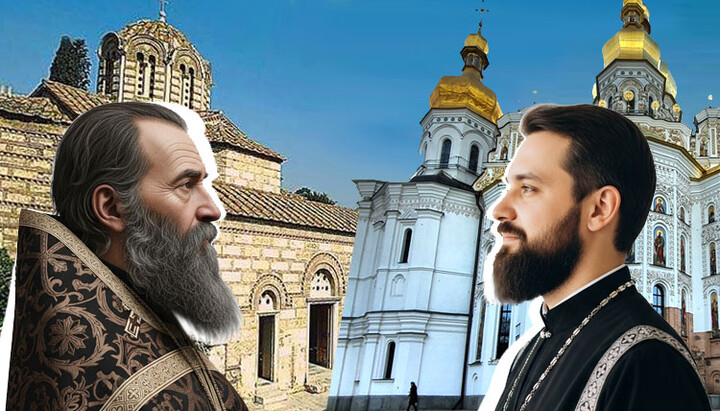
It is far to the bishop, there are almost no deacons, and presbyters (priests, fathers) are often associated by many with the Church itself. But in ancient times, it was different.
Today, we are accustomed to seeing the Church as primarily composed of priests. They lead parish communities, perform services and sacraments, and play a central role in managing material affairs, and so on. Compared to the early centuries of Christianity, today’s priests resemble bishops more than they do ancient presbyters.
As mentioned in previous publications, each Christian community in antiquity was headed by a bishop. A community of just twelve people already had the right to elect a bishop, and if there were fewer, neighboring communities could send delegates to make up the number and assist in the election. Today, however, a bishop governs a diocese that may comprise hundreds of communities.
Before the 1917 revolution, there were only a few dozen bishops in the Russian Empire, and the vast majority of priests saw them only once in their lifetime – at ordination. Some believers never saw a bishop at all. In antiquity, bishops were directly assisted by deacons, who today serve mostly for ceremonial purposes during hierarchical services. Conciliarity – understood as the active involvement of laypeople in the governance of the community –is now almost entirely absent.
Thus, one might say that the institution of the presbyter today holds a dominant position in the Church – not in the sense of possessing the greatest authority, but in that presbyters carry out the practical leadership of nearly the entire Church life.
However, in antiquity, presbyters held a far less significant role. It has already been said that deacons were more important in the governance of the community. It was also mentioned that the Acts of the Apostles and the Epistles often use the terms “bishop” and “presbyter” interchangeably. But this is not always the case. There are passages where the term “presbyter” is used with a meaning distinct from that of “bishop,” and from these we can learn how ancient presbyters differed from ancient bishops.
Of course, the New Testament is not the only source; presbyters are mentioned in other early writings as well, though we must note that these sources are insufficient for a comprehensive description of their role in antiquity. Much must be reconstructed from indirect evidence.
The Origin of Presbyters
Whereas we have a detailed account of the origin of the diaconate in the Book of Acts, and bishops are mentioned frequently throughout Acts and the Epistles, no document from the apostolic period directly explains the time, causes, or circumstances of the emergence of the presbyterate. The most widely held scholarly opinion is as follows:
The institution of presbyters arose very early – no later than the year 35 – based on the model of elders (presbyteroi) in Jewish congregations.
The word “presbyter” (πρεσβύτερος) can mean “elder” in the sense of one in authority (and in this case, is a synonym for “bishop”), but it can also mean simply an older man, a respected elder. In this latter sense, it refers specifically to presbyters, not bishops.
In many cultures, elders still play an important role in community life. People seek their counsel, ask their permission, and turn to them to settle disputes. The same was true in Old Testament Jewish society. The Old Testament books bear witness to this. For example: "Then Moses called for all the elders of Israel and said to them, ‘Select and take lambs for yourselves according to your families, and kill the Passover lamb.’" (Ex. 12:21)
"So the Lord said to Moses: ‘Gather to Me seventy men of the elders of Israel, whom you know to be the elders of the people and officers over them; bring them to the tabernacle of meeting, that they may stand there with you.’" (Num. 11:16)
The Gospels also speak of such elders: "When he heard about Jesus, he sent elders of the Jews to Him, pleading with Him to come and heal his servant." (Lk. 7:3) "When morning came, all the chief priests and elders of the people plotted against Jesus to put Him to death." (Mt. 27:1)
In these passages, the Greek word πρεσβύτερος is translated as “elder.” Based on these Jewish elders, the presbyters of the first Christian community in Jerusalem – originally Jewish in its ethnic composition – came into being. The head, or bishop, of that community was James, the brother of the Lord. Around him formed the presbyterate, composed of respected, elderly members of the community.
In his Epistle, the Apostle James commands this presbyterate to perform certain sacred acts – namely, the sacrament of anointing: "Is anyone among you sick? Let him call for the presbyters of the Church, and let them pray over him, anointing him with oil in the name of the Lord." (James 5:14)
James, as head of the Jerusalem community, knew well its structure and composition.
His reference to “presbyters of the Church” and their commission to perform a sacrament suggests that there were also elders who were not “of the Church” – that is, not empowered to perform sacred rites, but simply respected elders who were consulted on various matters. Most likely, “presbyters of the Church” underwent a rite of ordination – the laying on of hands – as we also see with bishops and deacons.
A third-century text, The Apostolic Tradition of St. Hippolytus of Rome, clearly states the necessity of such ordination: "When a presbyter is ordained, the bishop shall lay his hand upon his head... and pray as we have said above for the bishop. The bishop is equal to the presbyter in everything except the right to the throne and ordination, for the presbyter has not been given the authority to ordain."
It is worth noting that the presbyter’s right to celebrate the Eucharist without a bishop did not arise immediately – but more on that later.
Requirements for Presbyters
Following the example of the Jerusalem community, where the bishop was surrounded by elder presbyters, other Christian communities were likewise structured. In the Epistle to Titus, the Apostle Paul lists the qualities required of presbyters: "That the older men be sober, reverent, temperate, sound in faith, in love, in patience..." (Titus 2:2)
Here, “older men” (presbyters) cannot mean bishops, as the qualifications for bishops are listed earlier in Titus chapter 1, where bishops and presbyters are mentioned interchangeably.
St. Clement of Rome wrote to the Corinthians: "Submit to your leaders and render due honor to the presbyters." This suggests that presbyters were of advanced age, deserving of customary respect. Later, Blessed Jerome of Stridon (4th–5th c.) would write: "Presbyter and bishop are names: one of age, the other of office."
The Canons of the Holy Apostles (late 2nd c.) directly state that presbyters should be elderly.
Another distinction in these Canons concerns marital life. For bishops, it says: “It is good if he is unmarried, but if not, he must be the husband of one wife.” Regarding presbyters, it adds: “They should abstain from relations with their wives.” This too likely points to their older age. However, this was not an absolute requirement. The Apostolic Tradition of Hippolytus says: "If a presbyter’s wife bears a child, he is not removed from office." This may indicate that by the 3rd century, the age of presbyteral candidates had begun to decrease and their role to resemble more closely that which we are familiar with today.
St. Ignatius the God-Bearer, a disciple of the Apostle John, frequently refers to presbyters, calling them “the council of God and the assembly of the apostles.”
In his Epistle to the Magnesians, he says that presbyters, even if elderly, must obey the bishop, even if he is young – “remembering the Heavenly Father, the Bishop over all.” Another apostolic father, St. Polycarp of Smyrna, writes that presbyters “must be compassionate, merciful to all, correct the erring, visit the sick... abstain from anger and favoritism” (To the Philippians, ch. 6).
Functions of Presbyters
Besides correcting the erring and visiting the sick, St. Polycarp speaks of the judicial function presbyters held. He exhorts them to avoid “injustice in judgment” and not to be “harsh in judgment,” for “we are all before the eyes of the Lord God, and each must appear before the judgment seat of Christ and give an account.”
An apocryphal 2nd-century work known as the Clementines (once attributed to Clement of Rome) states plainly: "Those among the faithful who have disputes should not take them to civil courts but must always be judged by the presbyters and submit without objection to their ruling."
The Apostolic Canons describe other functions of presbyters. Each bishop, it says, must have an even number of presbyters – no fewer than two, ideally twenty-four. The even number was necessary so that presbyters could stand on the bishop’s right and left during the Eucharist, with the number twenty-four alluding to the twenty-four elders surrounding the throne of God in the Book of Revelation.
The “right” and “left” presbyters had different ranks and responsibilities.
Those on the right offered the Eucharistic Gifts to the bishop for consecration (“received the chalices from the archangels”), while those on the left distributed the Holy Gifts to the faithful (“passed the cups to the host of angels”). Thus, the “right” presbyters were oriented toward the bishop, and the “left” toward the laity. In addition to their liturgical assistance, “the right-hand presbyters were to ensure that the bishops who served at the altar received gifts of honor, and that they themselves also received honor according to need.” This likely refers to the material provision for bishops and presbyters.
It appears that the presbyterate around the bishop participated in distributing church offerings and property. The bishop did not simply take from the church treasury at will – he did so with the counsel of the presbyters, though his voice carried weight.
Later, in the 4th and 5th centuries, canonical rules were adopted to limit episcopal control over church property. The 24th canon of the Local Council of Antioch (341) declares: "All that belongs to the Church must be openly accounted for and be under the care of the presbyters assigned to church property."
And the 26th canon of the Fourth Ecumenical Council (Chalcedon, 451) states: "Since it has come to our attention that in some churches bishops manage church property without stewards, it is resolved that every church with a bishop must also have a steward from its own clergy to administer the property under the bishop’s direction..."
As for the “left-hand” presbyters, the Canons say: "The left-hand presbyters are to care for the congregation, that it may remain in all obedience, in peace, and avoid making noise." This appears to refer to maintaining order during worship.
However, this supervisory role likely extended beyond services and into general community life. The Canons instruct presbyters to judge wrongdoers:
"If anyone, after being admonished, responds with insolence, then the left-hand presbyters are to gather in the altar and, by common decision, assign due punishment to the offender so that others may fear." This hardly applied only to liturgical behavior.
The Apostolic Tradition offers further insights into the presbyters’ role during worship: "When the bishop is about to celebrate the Eucharist, the deacons and presbyters shall gather to him, clothed in white garments, the finest possible – shining, if possible." It then notes that during the consecration, not only the bishop, but also the presbyters, lay hands on the Gifts. The bishop communes first, then the presbyters, and afterward the laity – though communion may be administered by a presbyter.
As we can see, in antiquity many functions of bishops, presbyters, and deacons overlapped, and it is difficult to sharply distinguish them.
This is due both to the limited number of sources and to the fact that these roles had not yet clearly crystallized or been precisely defined in the early Church.
The Development of the Presbyterate
Emerging from the traditional elder structure found in many cultures, presbyters in the Christian Church almost immediately acquired liturgical significance. They assisted the bishop in celebrating the Eucharist. In early texts, there is no indication that presbyters performed sacramental rites independently, apart from the bishop (except for anointing the sick, as in James).
Presbyters helped manage church property as part of the bishop’s council and oversaw the moral behavior of the faithful. From the beginning, they also acted as judges in disputes.
Over time, bishops entrusted more and more of their responsibilities – both liturgical and administrative – to presbyters. As the role of deacons diminished, presbyters gradually assumed those functions as well. Eventually, they began to perform sacred rites without the bishop’s presence—though still with his authorization.
Gradually, so many powers were delegated that we have evidence of presbyters ordaining deacons – and even other presbyters. For example, St. Cyprian of Carthage (3rd c.) writes to Cornelius of Rome about one of his presbyters, Novatus: "He is the one who, out of ambition and malice, ordained his follower Felicissimus as deacon without my knowledge or consent." Novatus is reproved not for ordaining, but for doing so without Cyprian’s approval. St. John Cassian (4th–5th c.) recounts how a presbyter named Paphnutius, in the Egyptian desert where no bishop could be found, ordained a monk named Daniel first as deacon, then as presbyter.
These were likely exceptional cases.
The exclusive right to ordain remained with bishops, while all other sacred rites were delegated to presbyters.
Once the bishop ceased to be the head of a single community and became the overseer of an entire diocese, presbyters assumed the role they continue to hold today.
The next publication will be dedicated to the lower ranks of the ecclesiastical clergy in antiquity.
